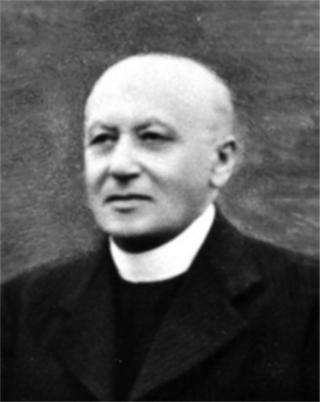Monsignore Michael Paulitsch

Personalia
Born:
Died:
Profession:
Persecution:
Imprisonment 12.03.1938 - August 1940,
Gau ban 1940
Memberships
Curriculum Vitae
Michael Paulitsch was born the son of a mountain farmer. After completing elementary school and grammar school, he entered the Klagenfurt seminary in 1894 and studied at the philosophical-theological house school there. After being ordained a priest in 1898, he spent some time as chaplain in Wolfsberg and at Klagenfurt Cathedral.
From 1900, Michael Paulitsch was active in the Christian Social Movement and became involved in Catholic associations, particularly workers' clubs. Like Konrad Walcher before him, he initially embarked on a career in journalism. After internships in Vienna, Graz and Germany, he succeeded Walcher as editor-in-chief of the "Kärntner Tagblatt" in 1912. He was subsequently able to reorganize the paper - also financially.
After the First World War, Michael Paulitsch's real political activity began. As early as November 11, 1918, he was sent to the Provisional Provincial Assembly, of which he was a member until July 4, 1921, and which elected him Vice President. During the Carinthian defensive struggles from 1918 to 1920, he was actively involved in journalism. In 1919, he stood as a candidate in the elections for the Constituent National Assembly and in 1920 for the National Council and was a member of the latter from March 4, 1919 to February 19, 1934. In 1931, he was elected provincial chairman of the Carinthian Christian Social Party. In 1933/34, he resigned from all his political functions due to the decision of the Austrian Bishops' Conference on the withdrawal of priests from politics, but retained his position as editor-in-chief.
Places
Place of activity:
Citations
Biolex des ÖCV unter www.oecv.at/biolex; Stand: 08.10.2022.
